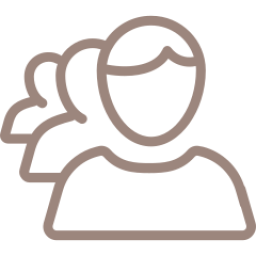Addiction and the struggles that come with it can feel so debilitating and rob you of precious time, money, relationships and peace.
Struggling with obsessive and/or compulsive behavior that you can’t control, is so painful, counseling or therapy could really help.
Therapy for Addiction
An addiction is a condition that develops over time and ultimately leads you to feel like you “have to” have that drink or that drug or partake in a particular behavior, like having sex or shopping. You surrender to something habitually or obsessively causing behavior that is harmful, ruinous or even dangerous and life threatening. An addiction will have a serious and negative effect on your body, mind, spirit, emotional state and your relationships. You can have a psychological addiction as well as a physical one.
Addiction can take many forms:
- Substance abuse (alcohol, drugs, marijuana and other substances)
- Gambling
- Sex
- Shopping and/or spending
- Work
- Food, and even
- Exercise
Signs that you may need help for an Addiction
- Compulsive use of a substance or behavior regardless of its detrimental effects.
- The feeling like you “can’t stop” doing this substance or behavior even if you want to.
- Consequences of your use or behaviors are increasing, and that doesn’t stop you.
- You feel dependent on the substance/ behavior and have to have it to feel “normal”.
- Preoccupation or obsessive thinking about the substance or behavior.
Substance Abuse and Recovery Consultation, Counseling & Therapy:
The different ways I can be of service to you or your loved one are:
Initial Assessment and Treatment recommendations:
I will do a thorough assessment of what is happening for you with drugs, alcohol, sex, gambling or other addictive behaviors or process addictions. Out of that assessment, I will offer treatment recommendations and will connect you directly to treatment centers and programs.
Psychotherapy and Counseling for Your Addiction, Substance Use Disorder or Other Process Addictions:
If therapy or counseling is recommended, I will work with you to come up with a personal treatment plan to help you get clean and sober from your addictive behaviors. I will help you find the right therapist for you, be it me or someone else.
In the therapy, together we will explore the patterns of your using/behaviors. We will look to uncover the underlying issues. In other words, what are the causal events or dynamics that fuel the desire to medicate with alcohol, drugs or other substances/behaviors.
We will work on how to stay stopped. Stopping the use or behavior can be relatively easy (it can also be extremely painful and difficult), staying stopped can be an even bigger challenge.
Together we have to explore all of the behaviors around your using and to change those behavior patterns and though patterns that promote the choice to medicate your state of being.
Working on how to TOLERATE not using is the really big work. How do you tolerate not smoking that cigarette when you feel stressed, how do you tolerate not having that first cocktail when you get home from work, how do you NOT pick up the drink, drug, porn or other behaviors when it is what you really want to do?
It is the first drink or drug that gets us drunk or stoned or binging. If we can prevent the first, then we can stay sober and clean.
I will help you to identify your feelings and to work on tolerating them so that you do not have to medicate them or yourself. We will work on healthy self-soothing behaviors, so that you don’t need the substances to self-soothe. Some self-soothing behaviors are meditating, mindfulness and exercise, but we’ll find what feels right and fits best for you.
We will work on your attitudes and behaviors. Many addicts and alcoholics have a whole host of attitudes (entitlement, self-centeredness, self-righteousness, anger and rage for example) and behaviors (stealing, lying, manipulating and cheating, for example). It can take years to change our attitudes and behaviors after we stop acting out in addictive behaviors and/or with chemicals.
We will explore Post-Acute-Withdrawal (PAWS). PAWS is a set of symptoms that occur after the initial phase of acute withdrawal from substances. PAWS can last or occur over a period of months and can include tremors, seizures, sweating, nausea, cravings, sleep disturbances, and anxiety among other symptoms.
I will work with the basic 12 Step principal of One Day at a Time, because truly that is all any of us have, and how in each day what you need to be clean and sober for that day.
12 Step support groups: we will talk about what 12 step groups might be good for you to attend to help hold you through this new phase of your life. If you have objections to 12 Step groups, we will explore those and also look into Smart Recovery. The benefit from a group of people, as support as one stop’s using one day at a time is hard to measure, but offers so much.
12 Step groups are not required, but they are certainly helpful should you choose to attend them to support your ongoing recovery.



